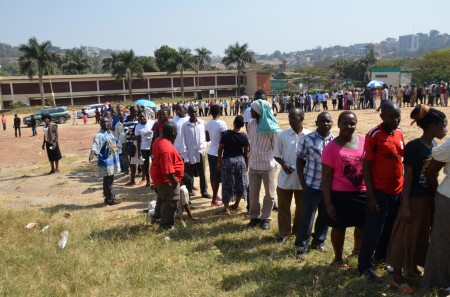
This article was originally published by the IPI Global Observatory on 24 February 2016.
Last week saw the most competitive elections in the history of Uganda. Several prominent ministers and key members of the ruling party were voted out—approximately 19 ministers lost elections, including Crispus Kiyonga, who is playing a key role in the Burundi Peace process.
The Electoral Commission declared incumbent Yoweri Museveni as the winner of the presidential election, with 60.7% (5,617,593 votes). Kizza Besigye came second with 35.37% (3,270,290 votes) and Amama Mbabazi third with 1.43% (132,573 votes) in a race that had eight candidates. President Museveni, who assumed office in 1986, is now one of Africa’s longest serving presidents, along with Angola’s Jose Eduardo Dos Santos (since 1979), Equatorial Guinea’s Teodoro Obiang (since 1979), Zimbabwe’s Robert Mugabe (since 1980) and Cameroon’s Paul Biya (since 1982). The 71-year-old has run the country for the last thirty years.
The shutdown of social media was widely reported in the international press and put a dark cloud over the elections, during which Kampala was heavily patrolled by military and police. “Calm,” “silence,” and uncertainty hung over Kampala and the country amid the announcement of President Museveni’s victory. There have been no victory jubilations for the last two days. The Kenyan and Russian presidents were the first to congratulate Uganda, and now Kizza Besigye remains under house arrest.

